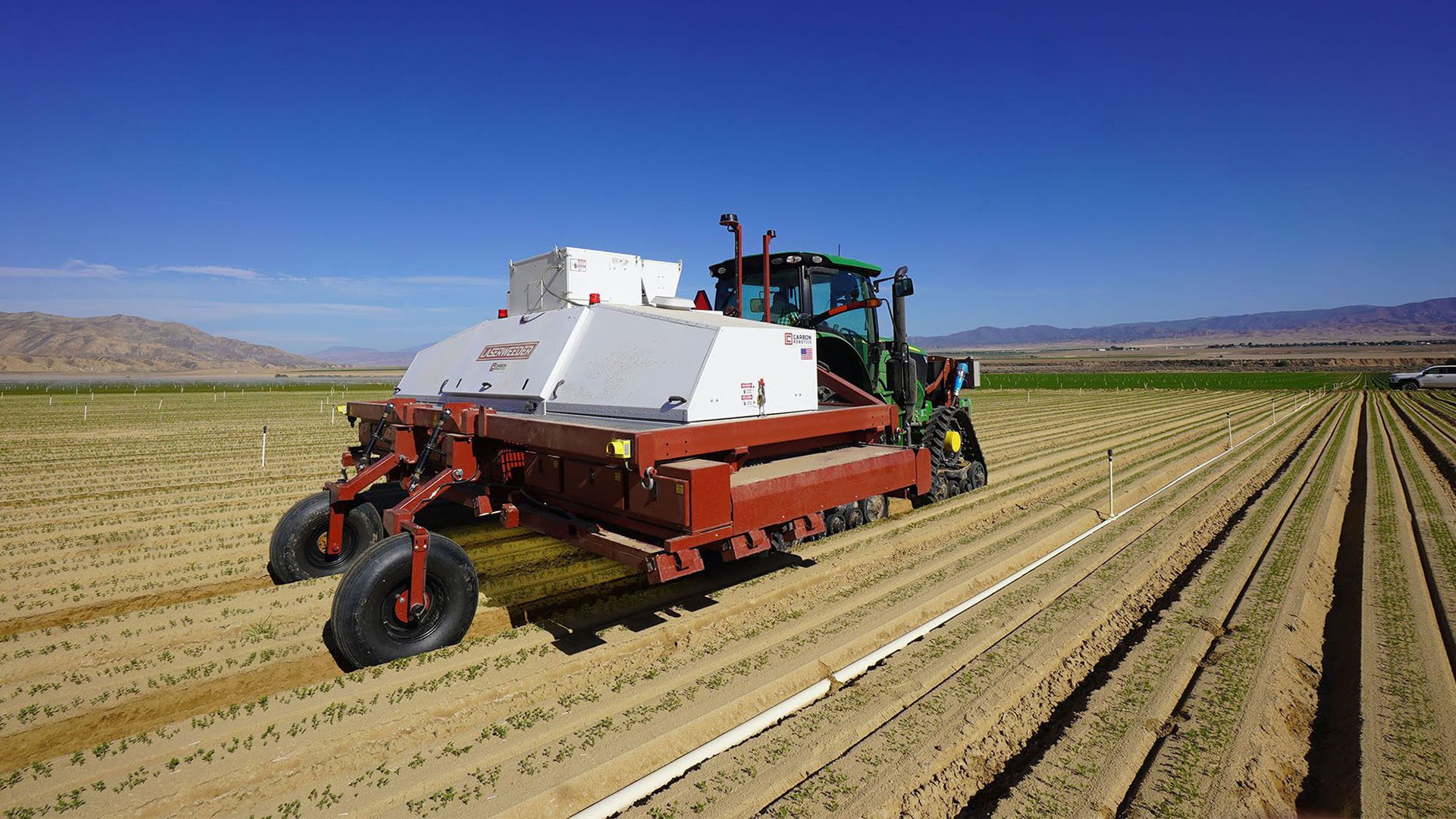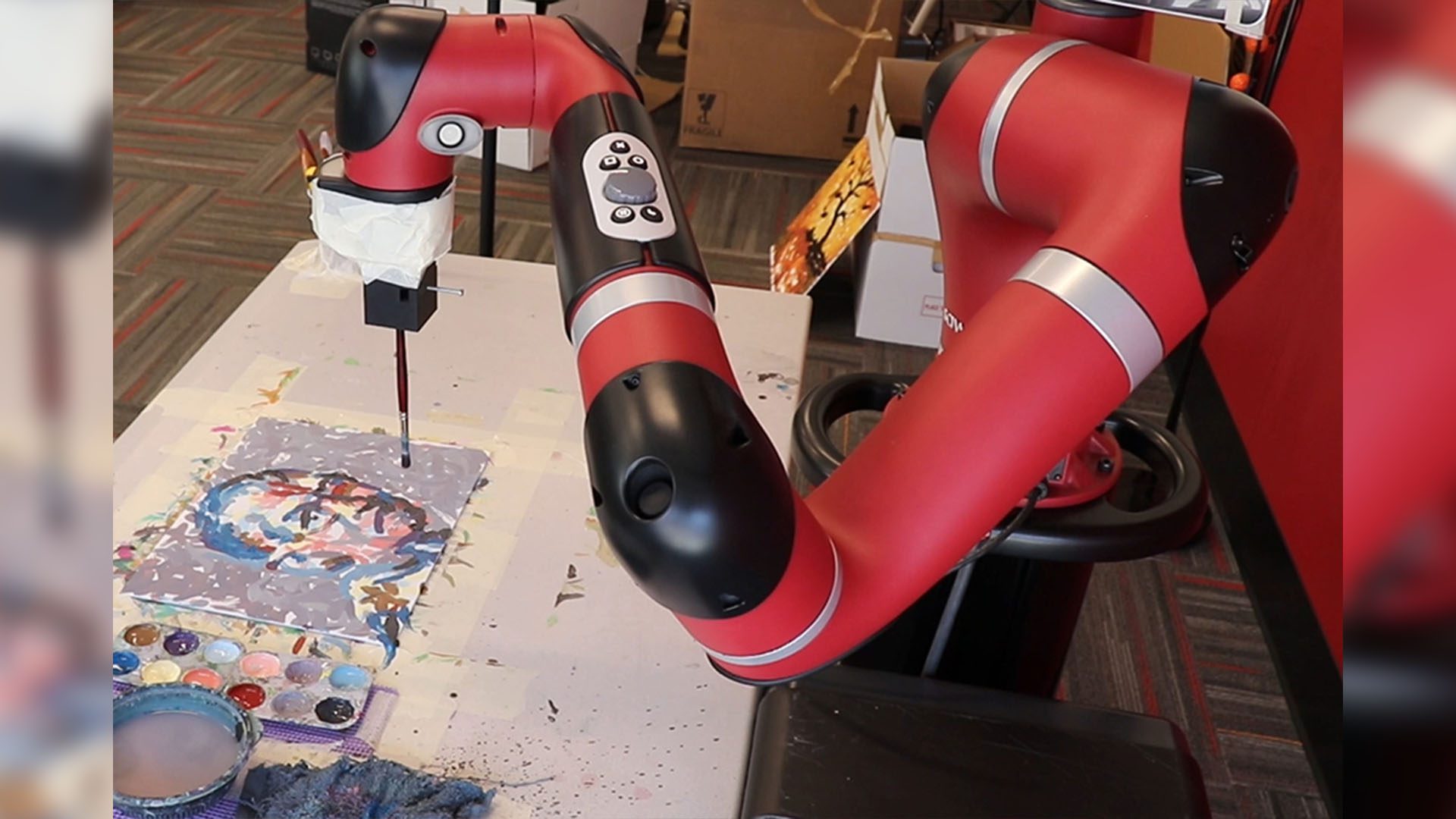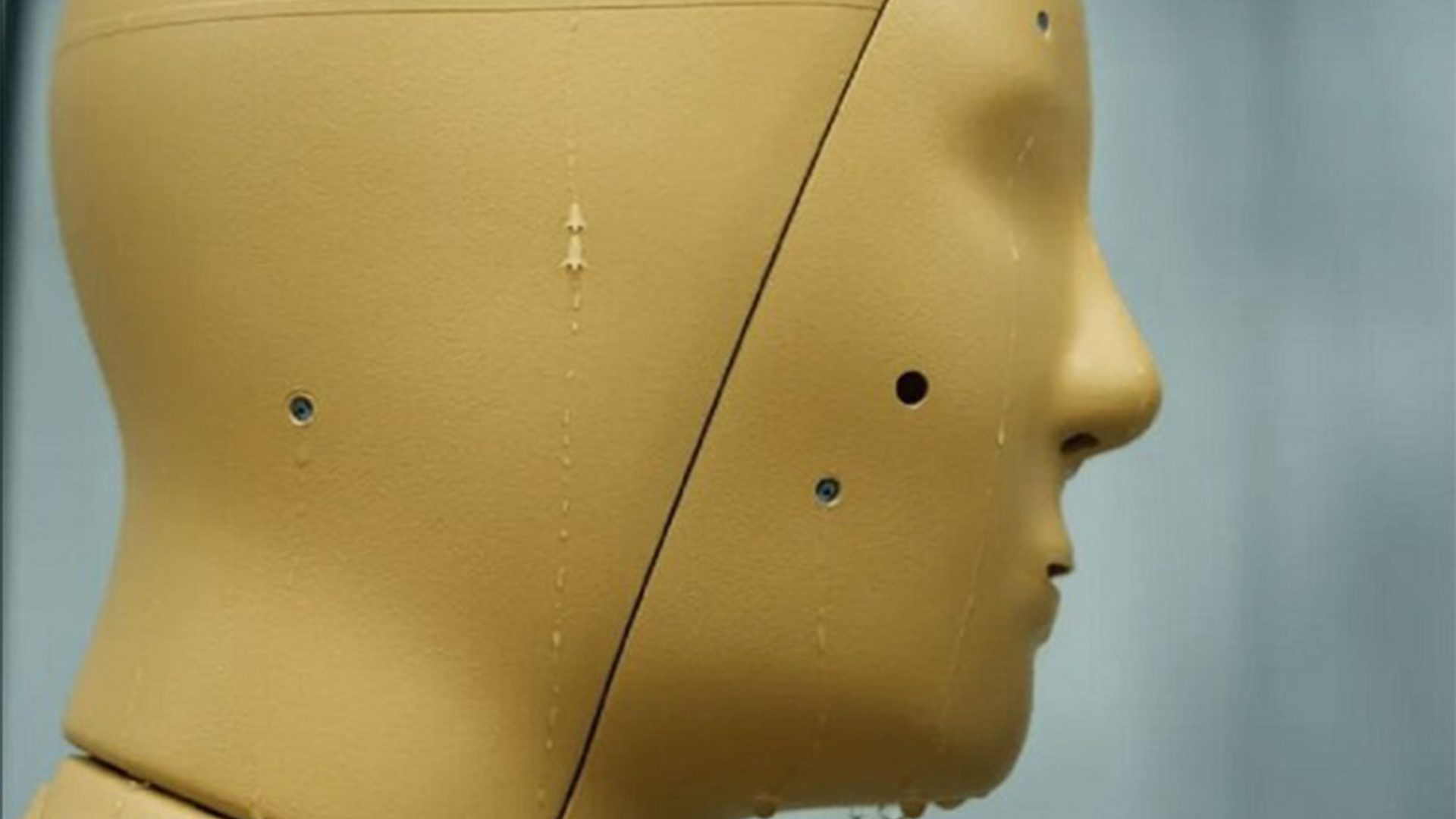Carbon Robotics has created the LaserWeeder, a new machine that uses AI to allow farmers to quickly and accurately eliminate weeds from fields.

Now shipping to farms around the US, the machine uses the power of robotics and laser technology. Created by Carbon Robotics, based in Seattle, the LaserWeeder can eliminate over 200,000 weeds per hour and offer up to 80% cost savings in weed control.
Carbon Robotics CEO and founder, Paul Mikesell, used his background in computer science, AI deep learning, and business to create the LaserWeeder. With many friends who work in the farm industry, Mikesell, the idea for developing the LaserWeeder came from the realization that “this venture capital money that is going into AI and technology — none of it was flowing into agriculture, and I didn’t understand why,” according to Mikesell.
As a response to this gap in the market, Mikesell decided to develop an AI-powered agricultural tool that is capable of identifying and removing weeds at a large scale. The machine is 20 feet wide and comprised of three rows of ten lasers that are pulled behind a tractor. As the unit travels across the field, the thirty lasers destroy weeds “with millimeter accuracy, skipping the plant and killing the weed,” said Mikesell.
Estimated to do the work equivalent of approximately seventy people, Mikesell also noted that the tool utilizes a “process of thermal energy. Thermal energy cell disruption is what’s happening at the plant level.” This can save farmers money on labor costs and help farmers who are struggling with labor availability.
“We taught it the difference between the different species of weeds,” he said of the unit. “We taught it how to protect the crops and not treat the crops.” Mikesell stated, “We taught it how to understand the size of a weed, not just in terms of the area, but also how thick it is. Then we plug that neural net — that deep learning AI — into a bunch of lasers and we let it kill weeds.”
Working without the use of harmful herbicides, this technology allows for a larger and more consistent crop yield because the crops aren’t being damaged through the use of chemicals. The system is designed to be used yearly as weeds continuously grow and it was named “Best AI-Based Solution for Agriculture” in the sixth annual AI Breakthrough Awards.
“They’re blowing through the air. They’re coming in through the water system. They’re running down the streams and rivers. They’re part of the irrigation cycle, in a lot of cases.” Mikesell added, “And so it’s a continual process — in the same way that people have field workers in the fields every year, or they spray herbicides every year, you would do the same thing with the LaserWeeder.”
Mikesell reports that the adoption of the technology by the farming community has been positive and that they are spending a lot of time with farmers to ensure the product fulfills their needs. He also stated that he believes that AI has taken so long to be utilized by the farming industry because much of AI technology “was developed in these urban centers and focused on the kinds of problems that folks have in the cities…. People just didn’t realize how much opportunity there was in farming — that gap has happened for a number of reasons and has gone on for too long. So we’re here to help bridge that.”







